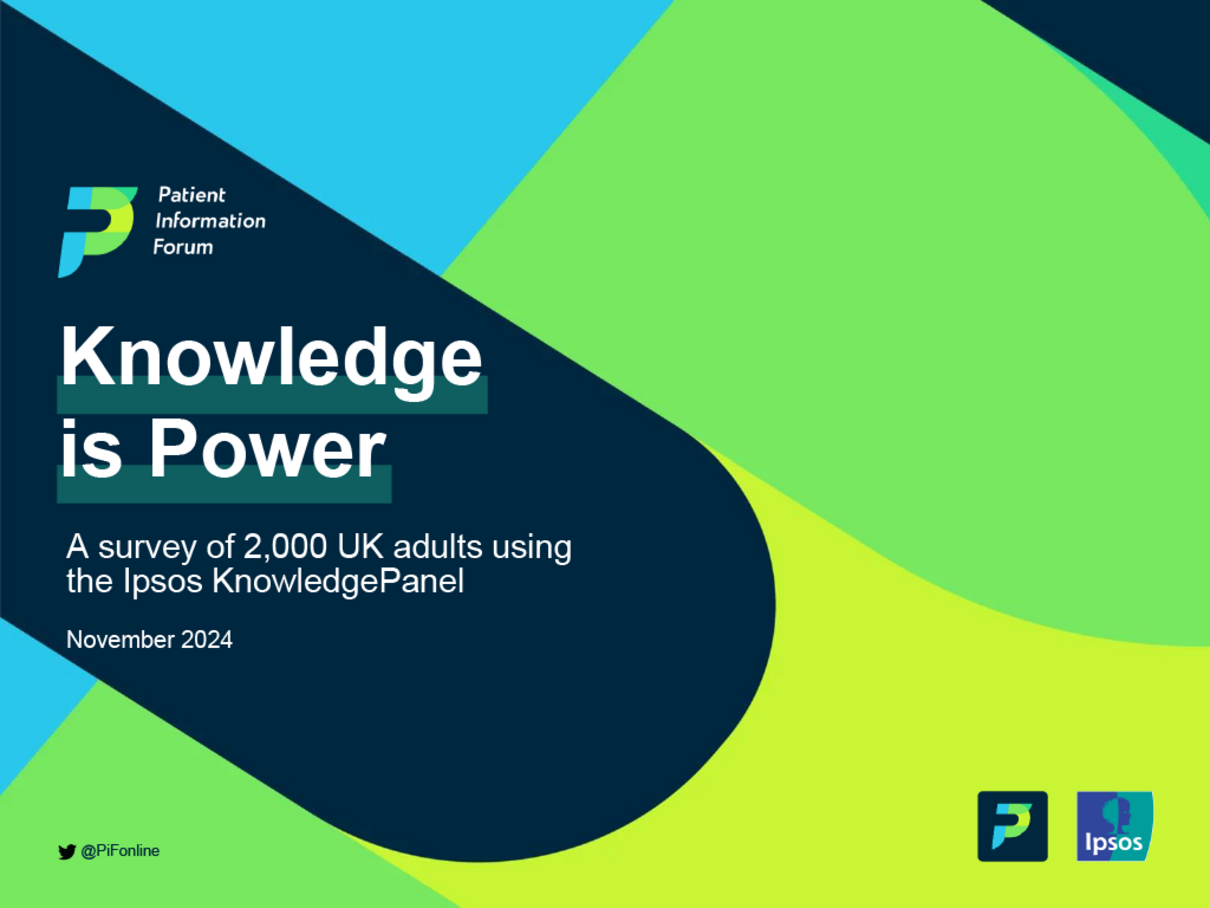
Knowledge is Power report
Adults in the UK are struggling to find health information they can trust and there are clear inequalities in access to information. Knowledge is Power offers new insights into information access, trusted sources, communication with healthcare professionals and the impact of misinformation.
The Patient Information Forum (PIF) and Ipsos have published new research into health information access across the UK. Knowledge is Power offers new insights on information access, trusted sources, communication with healthcare professionals and the impact of misinformation.
The report is based on a cross-sectional, nationally-representative survey of 2,003 adults in the UK from May to June 2024 using the Ipsos KnowledgePanel. It reveals the demand for the NHS to signpost trusted information and wide support for the verification of health information. There is already recognition of the PIF TICK among the UK population.
Key findings
- Half of adults in the UK are struggling to access trusted health information.
- 1 in 10 adults in the UK have been affected by misinformation, rising to 1 in 5 for ethnic minorities.
- 8 in 10 adults in the UK agree access to trusted health information would help them manage their health.
- 1 in 6 adults in the UK say their views are not taken seriously by their health professional. This rises to 1 in 4 for ethnic minorities.
- Only 1 in 10 adults with long term conditions in the UK are signposted to patient organisations, yet these are highly trusted by their users.
- 2 in 3 adults in the UK state independent verification of health information would increase trust.
Melissa Moodley, UK Head of Healthcare Research, Ipsos, said: “This timely research reveals a critical gap in access to trustworthy health information, with half of UK adults struggling to find reliable sources. This challenge is particularly acute for those with long-term conditions and minority groups. The impact is clear: 8 in 10 adults believe better access to credible health information would improve their health management. These findings underscore the urgent need to improve the provision of verified, accessible health information. Doing so is not just beneficial, but essential for enhancing overall health outcomes across the UK."
Recommendations
Knowledge is Power makes five recommendations on the right to health information, aligned with the three shifts proposed in the NHS 10-year plan. In summary they are:
- A right to health information – Health information is provided as a core part of patient care.
- Tackle misinformation – Through robust content standards and effective signposting of credible health information via health professionals and the NHS Apps.
- Tackle inequality – Health information must be accessible and appropriate for all.
- Lived experience as a metric – Embedding patient experience as a measure of NHS performance using the NHS Apps and single patient record.
- 5. Dedicated leadership – A mandate for the effective delivery of health information with a named lead in all NHS organisations.
Sue Farrington, chair of PIF, said: “Credible information supports people's health decisions, from childhood vaccinations to joint replacement surgery. For people with long term conditions, it is a core element of care. Our 2024 survey gives a clear view of how people want to access health information and the challenges they face. Resolving these issues will ensure everyone gets the information they need, supporting the prevention agenda and contributing to the delivery of positive health outcomes for all.”

Knowledge is Power report
Knowledge is Power report

Knowledge is Power - Key findings and recommendations
Knowledge is Power - Key findings and recommendations
